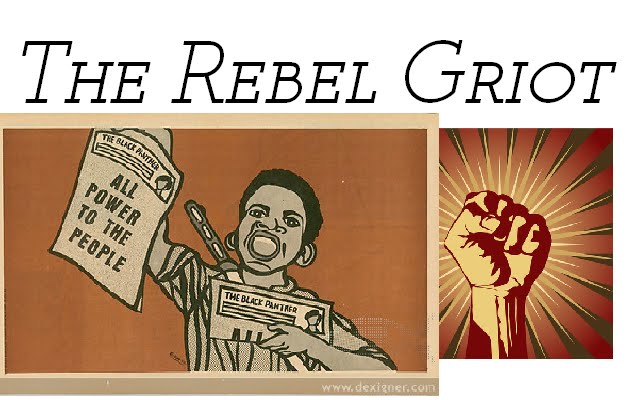 |
| Samir Amin: "The last Marxist in the Arab world" according to a friend of mine! |
The timing of this book couldn’t have been more appropriate. Amin has been writing about the use of political Islam as a tool of imperialism to undermine secular regimes for years, but in the decade following the second intifada of 2000, when armed jihad was raging against US, British and Zionist forces from Basra to Helmand, the thesis seemed counter-intuitive to say the least. The events of the past year and a half, however – with Islamists again acting as imperialism’s shock troops, in Libya and Syria, whilst simultaneously pushing neoliberal globalization to parts of Egypt even Mubarak couldn’t reach – have shown that ‘political Islam’ is as useful to imperialism as ever.
This book charts the development of the Middle East, and Egypt in particular, over the past 2000 years, from its rise and fall as a ‘hub’ of the world’s trading systems, through its stop-start attempts at modernization during the nineteenth and twentieth centuries, to the decline that followed Nasser’s defeat in the six day war. But the most interesting sections are those tracking the developments of the last 50 years.
Intriguingly, 4/5 of the book was written before the social explosions of early 2011. By outlining the growing social pressures and conflicts which preceded them, Amin shows that the explosions were, in fact, far from unexpected. But he also shows that if the capture of these uprisings by the Muslim Brotherhood was not exactly destined (Amin does not believe in such things), it was also eminently predictable.
Since the time of Sadat, Amin argues, the Egyptian state has actually been complicit in the growth of the Muslim Brotherhood’s power. Nasser’s defeat in 1967, and his death in 1970, resulted in a capitulation to imperialism, and a corresponding decline in living standards – and in the regime’s legitimacy. To compensate, the state sought instead to gain religious legitimacy by systematically handing over powerful institutions – namely television, education and the courts – to Islamist control. This whole process deepened following the collapse of the USSR, which led to a fresh wave of neoliberalism and impoverishment, along with a renewed attempt to channel opposition in a purely religious direction. Thus, for Amin, the apparent ‘contradiction’ between the Sadat-Mubarak state and the Brotherhood is pure theatre – Egypt has been run by what amounts to an alliance between the two forces for a long time.
Imperialism, meanwhile, has been complicit in the process, allowing its Saudi friends to pour money into the Muslim Brotherhood, who are then able to provide essential services (such as healthcare) where the state has been forced by IMF diktat to cut back. Today, they fully support the Brotherhood’s takeover of the country. As Amin explains, “the single aim of Washington and its allies Israel and Saudi Arabia is to abort the Egyptian democratic movement, and to that end they want to impose an Islamic regime under the direction of the Muslim Brotherhood – the only way for them to perpetuate the submission of Egypt”. The Brotherhood – through their full support of Empire regime change policy in the region and the reduction of the Egyptian economy to an informal ‘bazaar’ market system – are the perfect allies for Empire in its quest to push back the possibility of Egypt’s emergence as a strong, independent state. Their programme is one of capitulation to the US military and globalized capital, whilst upholding the Zionist status quo. No wonder Cameron and Hague are so gushing in their support.
An edited version of this article first appeared in the Morning Star

Peace Be Unto Those Who Follow Right Guidance.
ReplyDeleteThe term "Political Islam" is an oxymoron since Islam, as a Power-Relation and Life-Transaction that expresses itself in the Polity, is fundamentally political.
In addition, the refusal to consider a plurality of takes on what is, unfortunately, referred to as "Political Islam" or "Islamism" misrepresents the latter in essentialist terms as a monolith construct; this is a standard tactic of Racists (White Supremacists) of both Left ""Good Cop") and Right ("Bad Cop") persuasions.
Samir Amin and others may be correct in arguing that "Political Islam" has been and is being used / co-opted by Imperialism [=White Supremacy (Racism)]; however, Left-secularism is not the answer since this is yet another Eurocentric "grand narrative" being exported to non-white people under the guise of anti-Imperialism / anti-Capitalism / anti-Zionism.
Amin has deeply internalised HMV (His Master's Voice) and is thereby incapable of engaging with Islam in a critical yet decolonial fashion.
Peace
Peace Be Unto Those Who Follow Right Guidance.
ReplyDeleteI recommend readers of this article and blog to engage with the decolonial works of scholars based in so-called "Latin America" such as Ramon Grosfoguel, Enrique Dussel, Walter Mignolo and Nelson Maldonado-Torres, as well as Critical Muslim decolonial scholars such as Salman (Bobby) Sayyid, author of the important works A Fundamental Fear: Eurocentrism and The Rise of Islamism and Recalling The Caliphate.
Thanks brother for your comments. Grosfuegel is excellent - I will endeavour to look at the other authors you recommend as well
ReplyDelete